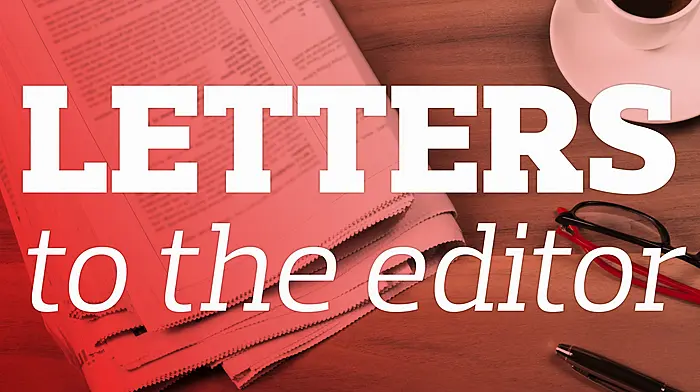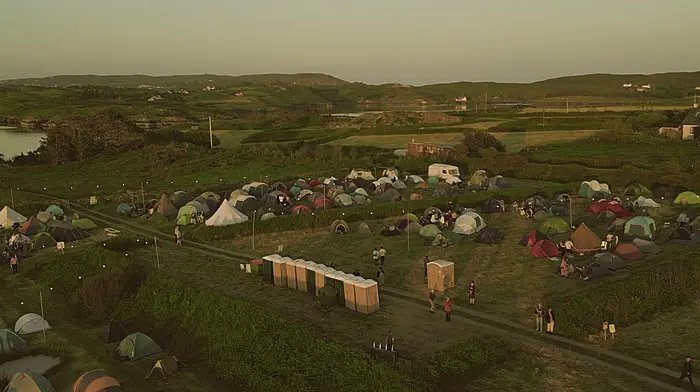NO sooner had the Climate Action and Low Carbon Development (Amendment) Bill 2020 been published by the leaders of the three coalition government parties, Fianna Fáil, Fine Gael and the Green Party, than MEPs voted to raise the bar further on emissions reductions, seeking more sooner, which calls into question Ireland’s ability to achieve them.
Given that we failed miserably to come anywhere near the EU target of reducing our greenhouse gas emissions by 20% between 2005 and 2020, how we can get our emissions down 60% on 1990 levels by 2030 is difficult to envisage, yet we need to be more ambitious if we are to reach the new Bill’s aim of making us carbon-neutral by 2050.
Once the European Council has agreed upon a common position regarding the decision by the MEPs, Parliament will start negotiations with member states. Collectively, but most importantly individually, member states most work to ensure that they become carbon-neutral by 2050 and MEPs called for sufficient funding to be provided to help achieve this.
They also suggested that an EU Climate Change Council (ECCC), an independent scientific body, be set up to assess whether policy is consistent and to monitor progress. Reductions in emissions, and equally-important sustainability, need to be achieved across so many sectors, including manufacturing, transport, agriculture, fishing and household, so they will involve and affect a lot of people across society.
Ireland’s new Climate Action Bill has been broadly welcomed for its admirable ambitions, but there have been reservations expressed about how targets are going to be enforced. A slap on the wrist for missing them is not going to suffice if we are serious about losing our deserved but unwanted ‘laggard’ reputation in this regard.
The Bill has proposed five-yearly economy-wide carbon budgets and the Climate Change Advisory Council will have a strong input to these budgets. Local authorities are to be tasked with preparing their own individual climate action plans, but the most important thing of all will be the oversight of the Oireachtas, which must not engage in any form of obfuscation regarding the meeting of targets.
The Joint Committee on Climate Action has been meeting in recent weeks to carry out pre-legislative scrutiny before it goes back to the Dáil for the first major vote on its contents, after which they will examine any amendments proposed. It is hoped that these will include measurable interim targets en route to carbon neutrality in 30 years’ time and that the Minister for Climate Action would be held accountable to the Oireachtas if these were not achieved.
Among the complaints raised by a number of senators at the Joint Committee’s pre-legislative scrutiny were that the Bill contained a lot of ‘loose language’ and was, therefore, vague on some specifics. Jennifer Whitmore, TD, Social Democrats, felt that it needed to be strengthened by including interim targets, however the assistant secretary at the Department of Environment, Climate and Communications, Brian Carroll, rejected claims that the Bill was designed to create loopholes that would effectively do away with or dilute accountability if targets were not reached.
Mr Carroll was adamant that 2030 targets and the requirement to achieve climate neutrality by 2050 were linked and clearly laid down. He added that, once carbon budgets were in place next year for 2021 to 2025 and 2026 to 2030, it would copper-fasten the target laid down in the programme for government of a 7% annual reduction in emissions averaged over the decade.
It was also pointed out that the Bill ‘binds the State,’ and not just a particular government, to achieving the emissions reduction targets, so it will apply to successive governments for the next 30 years. It can only be changed if it needs to be in accordance with the latest climate science or new international climate targets which would be likely to be even more ambitious.
Work is ongoing on defining ‘decarbonisation bands’ for individual sectors and there is a balance to be found here, because if they were too broad, it could reduce ambition, and if they were too narrow they risked being ‘overly prescriptive.’ As far as agriculture is concerned, the removal of residual methane emissions, ideally, needs to be addressed through balancing them with carbon sinks and other nature-based solutions.
Theresa O’Donohoe, a member An Taisce’s Climate Committee, summed up the Bill quite succinctly, saying: ‘Passing the climate law is the easy bit. The real test is implementing policies that reduce emissions fast enough while being fair enough on everybody.’
Clearly, TDs and senators need to ensure that the Climate Action Bill is given the teeth it needs to become effective legislation.
MEPs raise climate action bar higher
November 1st, 2020 5:05 PM

Tags used in this article
Related content

Subscriber
21 Apr, 2025
LETTERS TO THE EDITOR : One for sorrow, two for joy

Editorial
14 Apr, 2025
EDITORIAL: Back to school but this time it’s fun (and free)

Opinion
7 Apr, 2025
EDITORIAL: Earthquakes, tarriffs, Gaza: acts of God?

Editorial
31 Mar, 2025



